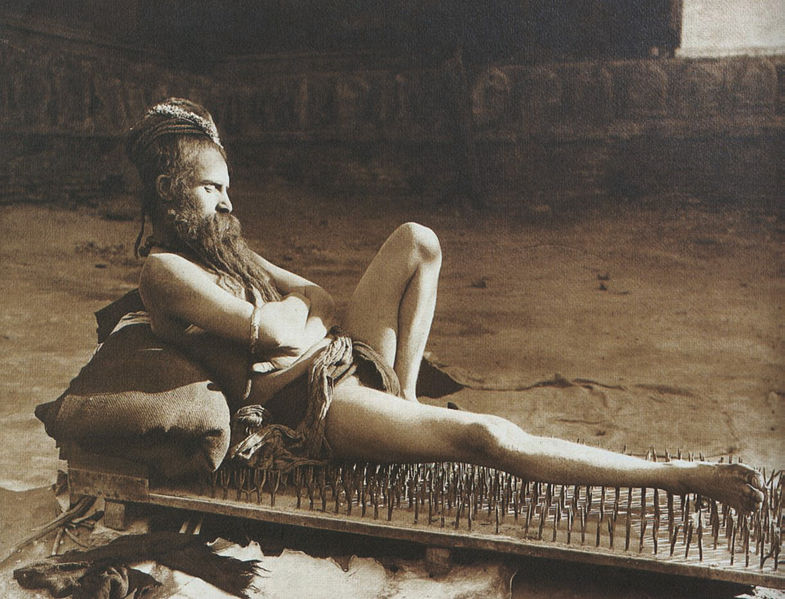Some inhale their meals while others prefer to live on air. Count eccentric inventor Joseph William Sheppard in the latter category. His self-induced demise was the subject of an article in the February 1, 1903 New York Times. An excerpt:
“In developing the theory that a man could train himself so that he could live without food, Joseph William Sheppard came to his death yesterday morning in a room he rented in the boarding house of Mrs. Madden at 159 West Eighty-third Street. The facts preceding the old man’s end came to light because the Board of Health declined to accept a death certificate signed by Dr. Julian P. Thomas of 26 West Ninety-fourth Street. Coroner Scholer has announced an investigation, to take place to-day.
Dr. Thomas it was learned last night, played very little part in the life of Mr. Sheppard, who was an inventor, a Brahmin in belief, a student of strange philosophies, an Englishmen by birth, and so much of a recluse that it is said he did not have a speaking acquaintance with a dozen human beings. Until he began his final treatment, which consisted of starving himself, he lived for fifteen years on a diet of rice, port wine, and honey.
This diet was preliminary, according to his philosophy, to a state of being in which he would be altogether psychic, with no troublesome physical attributes at all. This strange idea caused his wife to get a divorce from him some years ago, his two daughters to leave his home, and his only son to dodge his society as much as possible.
Dr. Thomas, who is a food specialist and rarely visits patients at their homes, knew Mr. Sheppard two years ago. It was about that time that the inventor, then sixty-two years old, began to plan starvation, and it was inferred by those who knew him that he visited the physician simply to study the mind of one who seemed foolish enough to believe n nourishment for unhappy mortals’ stomachs.
The doctor’s advice was not taken, and their acquaintance had little of professional value in it. Then Dr. Thomas lost track of his mock patient until last Thursday, when he received a summons to visit the inventor. The message came from the old man’s son. W.B. Sheppard, manager of the American Brazing Company of 532 West Twenty-second Street. The physician went to 159 West Eighty-third Street. The inventor was so weak and emaciated that he could hardly lift his hand.
‘You must eat or you will die,’ the doctor said to him.
‘I don’t need to eat,’ was the reply. ‘I’ll become so well trained that I shall not need food. You were not called in here to satisfy me, but simply because my son insisted. You are called for the protecting of my family.’
All efforts to persuade him to take nourishment, according to both the son and the doctor, were in vain, and the physician went away. Shortly before the old man died there was another summons, but Dr. Thomas declined to respond, saying it was no use for him to visit a patient who would not do what was ordered. When the death certificate was sent to the Health Board it was accompanied by the following note from the physician:
Enclosed you will find a death certificate for Mr. Joseph William Sheppard. You will note that I say he died from ‘starvation.’ Mr. Sheppard had some very peculiar ideas and hung to them tenaciously. For the cure of the trouble he had decided that he would take a prolonged fast; exactly how long he fasted we do not know. His friends tried to get him to eat, but it was utterly impossible to persuade him to do so. He continued his fast in spite of all efforts–in fact, until he died. His friends and relatives tried to get him to eat, but he would not. They called me in, but I could not influence him to take food. I hope that this report, in conjunction with the death certificate, will be satisfactory.When Dr. Thomas was seen last night, after giving the facts told above he said Mr. Sheppard had been urged at the last to take just a little fruit juice, if nothing else. It had been a theory of the old man at one time that he might break his rule to the extent of eating ‘something that was ripened in the sun.’ But at last he had gotten beyond this stage, and not even a drop from an orange was permitted to pass his lips.”
Tags: Coroner Scholer, Dr. Julian P. Thomas, Joseph William Sheppard, Mrs. Madden, W.B. Sheppard

